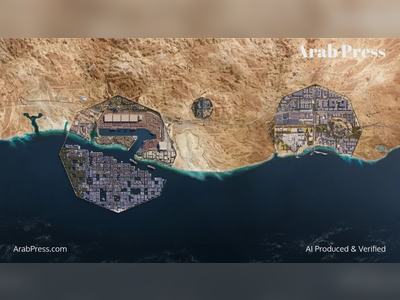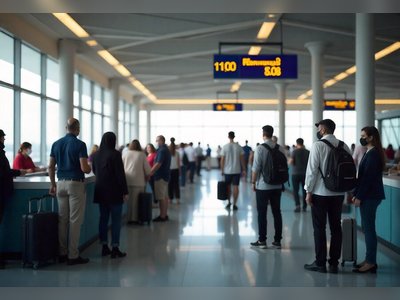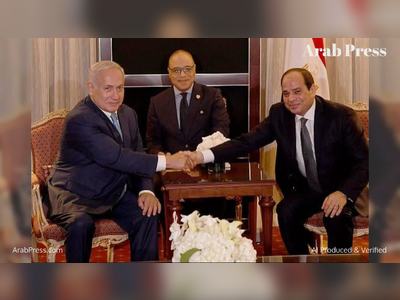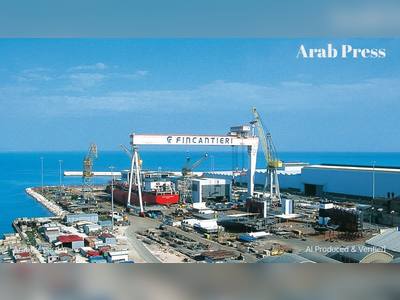Saudi Crown Prince to Visit Washington While Israel Recognition Remains Off-Table
Mohammed bin Salman prioritises a U.S. defence agreement and nuclear deal, deferring normalisation with Israel
Saudi Arabia’s Crown Prince Mohammed bin Salman is scheduled to travel to Washington in mid-November for his first U.S. visit since 2018, marking a major diplomatic push even as formal ties with Israel remain distant.
The visit places a spotlight on a proposed U.S.–Saudi security pact and a potential civilian nuclear agreement, while Israel normalisation continues to depend on broader regional concessions.
Riyadh and Washington are in advanced discussions over a defence arrangement analogous to the recent U.S.–Qatar pact.
Sources say the agreement, likely signed during the Crown Prince’s visit, would commit the United States to provide greater security guarantees to Saudi Arabia in return for deeper cooperation on intelligence, missile defence and air power.
At the same time, Saudi officials are negotiating access to American stealth fighter jets such as the F-35 and a civilian nuclear-energy programme.
Although Washington has long linked such transfers to progress on Israeli-Saudi normalisation, Riyadh insists its recognition of Israel depends on an “irrevocable, major step” toward a Palestinian state.
That position remains at odds with Israel’s current government, which rejects Palestinian statehood.
President Donald Trump has publicly expressed confidence that Saudi Arabia could normalise with Israel before year’s end, yet Saudi commentators and analysts describe such an outcome as “virtually impossible” under current conditions.
Polling also indicates widespread Saudi public scepticism toward Israel ties in the wake of the Gaza war, meaning the leadership is proceeding cautiously.
For the Crown Prince, the Washington agenda emphasises strategic autonomy, defence modernisation and global engagement rather than an immediate diplomatic breakthrough with Israel.
Observers view the visit as a milestone in U.S.–Saudi relations under the Trump administration, but not a shortcut to full-scale Middle East accord.
While the trip offers the Cairo-Riyadh–Washington axis an opportunity to reset ties and reinvigorate regional architecture, the normalisation with Israel remains predicated on shifts in the Israeli-Palestinian conflict—shifts that appear unlikely this year.
The visit places a spotlight on a proposed U.S.–Saudi security pact and a potential civilian nuclear agreement, while Israel normalisation continues to depend on broader regional concessions.
Riyadh and Washington are in advanced discussions over a defence arrangement analogous to the recent U.S.–Qatar pact.
Sources say the agreement, likely signed during the Crown Prince’s visit, would commit the United States to provide greater security guarantees to Saudi Arabia in return for deeper cooperation on intelligence, missile defence and air power.
At the same time, Saudi officials are negotiating access to American stealth fighter jets such as the F-35 and a civilian nuclear-energy programme.
Although Washington has long linked such transfers to progress on Israeli-Saudi normalisation, Riyadh insists its recognition of Israel depends on an “irrevocable, major step” toward a Palestinian state.
That position remains at odds with Israel’s current government, which rejects Palestinian statehood.
President Donald Trump has publicly expressed confidence that Saudi Arabia could normalise with Israel before year’s end, yet Saudi commentators and analysts describe such an outcome as “virtually impossible” under current conditions.
Polling also indicates widespread Saudi public scepticism toward Israel ties in the wake of the Gaza war, meaning the leadership is proceeding cautiously.
For the Crown Prince, the Washington agenda emphasises strategic autonomy, defence modernisation and global engagement rather than an immediate diplomatic breakthrough with Israel.
Observers view the visit as a milestone in U.S.–Saudi relations under the Trump administration, but not a shortcut to full-scale Middle East accord.
While the trip offers the Cairo-Riyadh–Washington axis an opportunity to reset ties and reinvigorate regional architecture, the normalisation with Israel remains predicated on shifts in the Israeli-Palestinian conflict—shifts that appear unlikely this year.










